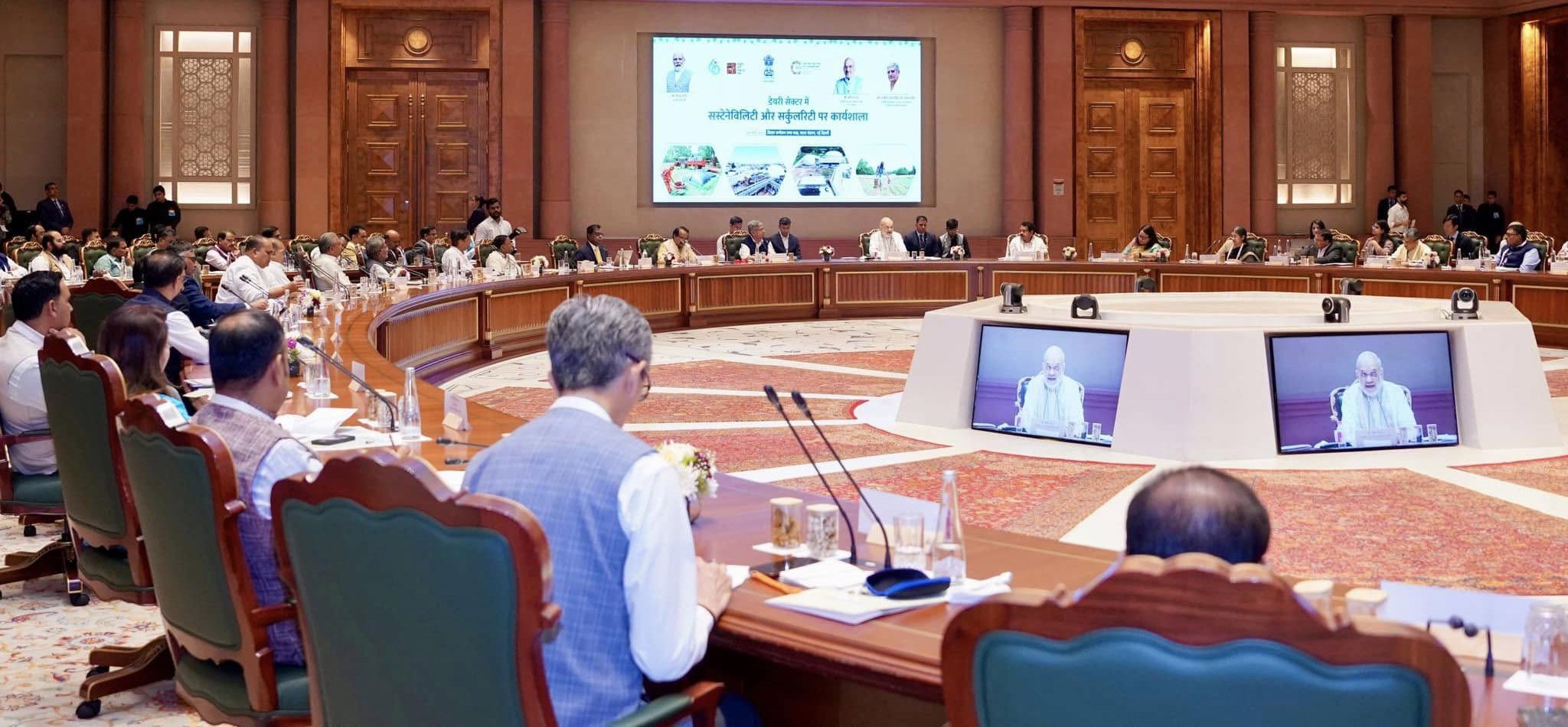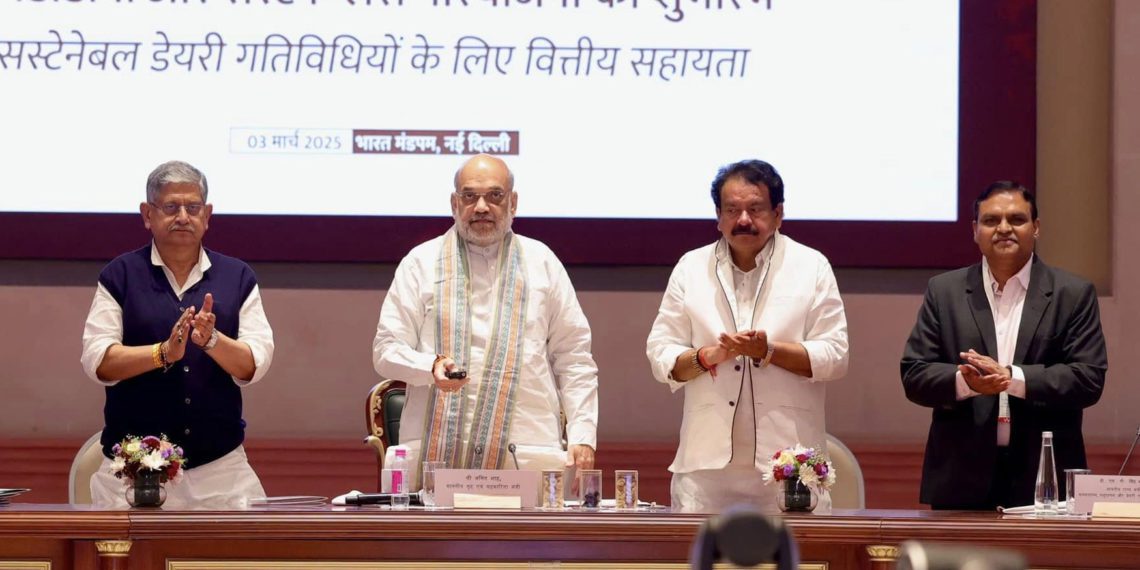The Workshop on Sustainability in the Dairy Sector and Circularity, organized by the Ministry of Fisheries, Animal Husbandry, and Dairying in Delhi, marked a significant step towards sustainable dairy practices. The event saw the National Dairy Development Board (NDDB) sign Memorandums of Understanding (MoUs) with 26 Milk Unions from 15 states, in the presence of Union Ministers Amit Shah and Rajiv Ranjan Singh.
Key stakeholders from the dairy sector, senior officials from the Department of Animal Husbandry & Dairying, the Ministry of Petroleum & Natural Gas, the Ministry of New & Renewable Energy, the Department of Fertilizers, NDDB, Indian Oil Corporation, and various milk cooperatives attended the event at Bharat Mandapam.
A major highlight was the signing of an MoU between NDDB and NABARD, aimed at promoting sustainable and inclusive growth in the dairy sector through technical, financial, and implementation support. Additionally, NDDB signed MoUs with 26 Milk Unions for setting up biogas plants across the country, reinforcing the commitment to circular economy principles.
On this occasion, comprehensive guidelines for sustainability in the dairy sector were released. NDDB also launched financing initiatives under its Small-Scale Biogas, Large-Scale Biogas/Compressed Biogas projects, and NDDB Sustain Plus Project, aiming to support sustainable dairying interventions. These efforts are expected to drive manure management improvements, energy generation, and reduced environmental impact.


Union Minister Rajiv Ranjan Singh noted that utilizing cow dung for fuel production could enhance farmers’ incomes. With India’s livestock population exceeding 53 crores, including 30 crore cows and buffaloes, he stressed the potential of cow dung for organic fertilizer and biofuels, which would boost agricultural productivity.
Alka Upadhyaya, Secretary of the Department, highlighted India’s position as the “Dairy of the World,” contributing 30% to the agriculture Gross Value Added (GVA). To support sustainable practices, NDDB introduced a Rs 1,000 crore financing scheme for small biogas, large biogas, and Compressed Biogas (CBG) projects, aiming to scale up manure management models over the next decade.
Discussions at the workshop focused on policy frameworks and financial mechanisms for scaling up circularity initiatives in dairying. Experts from DAHD, MNRE, NABARD, ONGC, NDDB, Amul, and other organizations deliberated on carbon credit opportunities, successful circular economy models, and carbon trading’s role in promoting sustainability.
Notable models such as the Zakariyapura, Banas, and Varanasi models demonstrated how dung could be a valuable resource alongside milk, fostering a financially viable and environmentally responsible dairy sector.













































